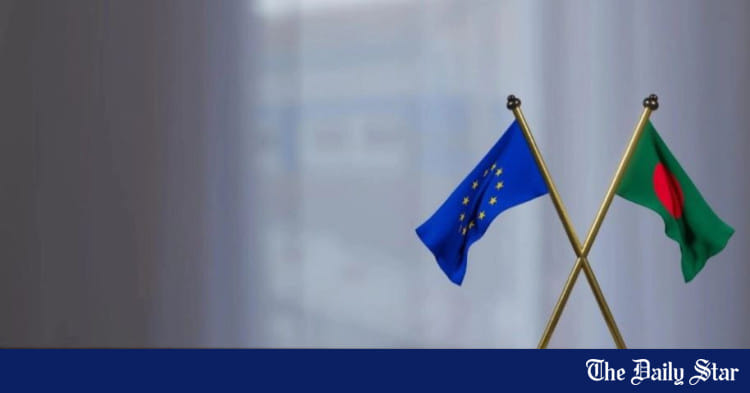- Copy to clipboard
- Thread starter
- #16

US to help Bangladesh get back billions of dollars siphoned abroad
Blinken assures Yunus
US to help Bangladesh get back billions of dollars siphoned abroad
Blinken assures Yunus

US Secretary of State Antony Blinken meets with Bangladeshi Chief Adviser and Head of the Interim Government Muhammad Yunus on September 26, 2024, in New York. Photo: Reuters/Bryan R Smith
US Secretary of State Antony Blinken assured US support to get back the billions of dollars stolen from Bangladesh and siphoned abroad by individuals linked with the previous regime.
He said this while holding a meeting with Chief Adviser Professor Muhammad Yunus at a hotel in New York.
Yunus said fighting corruption and improving law and order were the top priority of the government, according to chief adviser's press wing.
"The previous regime sank the country into an ocean of corruption. This [fighting corruption] is my number one issue," Yunus said.
He sought US support to get back the billions of dollars stolen from the country and siphoned abroad by individuals linked with the previous regime.
"It is a huge amount of money. Unbelievable!," he said, referring to the laundered assets.
Blinken offered the US government's support in this regard. "We are happy to help," he said. "We have a lot of expertise in dealing with endemic corruption," he added.
Blinken said the US wants to be good partners and it will make things work fast for Bangladesh. He added that the US has "tremendous" respect for Prof Yunus and they admired that he took up the leadership of the country at a critical time for the nation.
The chief adviser said improving labour standards was one of the government's top goals, as this would pave the way for more foreign direct investment in the country.
Blinken said the US is the largest source of foreign investment in Bangladesh and hoped it would grow in the coming years.
They also discussed the UN fact-finding mission investigating atrocities during the July-August uprising and media freedom.
Prof Yunus said his government has upheld freedom of speech and freedom of the of the press. He said he has asked the media to criticise them "as best as they can.".
The chief adviser said the government is committed to maintaining racial harmony in the country. "All of Bangladesh is a big family. We have differences. But we are not enemies," he said.
The two leaders also discussed the Rohingya crisis, with the chief adviser seeking support for hundreds of thousands of young Rohingya children growing up in the camps in Bangladesh.
Blinken assures Yunus
US Secretary of State Antony Blinken meets with Bangladeshi Chief Adviser and Head of the Interim Government Muhammad Yunus on September 26, 2024, in New York. Photo: Reuters/Bryan R Smith
US Secretary of State Antony Blinken assured US support to get back the billions of dollars stolen from Bangladesh and siphoned abroad by individuals linked with the previous regime.
He said this while holding a meeting with Chief Adviser Professor Muhammad Yunus at a hotel in New York.
Yunus said fighting corruption and improving law and order were the top priority of the government, according to chief adviser's press wing.
"The previous regime sank the country into an ocean of corruption. This [fighting corruption] is my number one issue," Yunus said.
He sought US support to get back the billions of dollars stolen from the country and siphoned abroad by individuals linked with the previous regime.
"It is a huge amount of money. Unbelievable!," he said, referring to the laundered assets.
Blinken offered the US government's support in this regard. "We are happy to help," he said. "We have a lot of expertise in dealing with endemic corruption," he added.
Blinken said the US wants to be good partners and it will make things work fast for Bangladesh. He added that the US has "tremendous" respect for Prof Yunus and they admired that he took up the leadership of the country at a critical time for the nation.
The chief adviser said improving labour standards was one of the government's top goals, as this would pave the way for more foreign direct investment in the country.
Blinken said the US is the largest source of foreign investment in Bangladesh and hoped it would grow in the coming years.
They also discussed the UN fact-finding mission investigating atrocities during the July-August uprising and media freedom.
Prof Yunus said his government has upheld freedom of speech and freedom of the of the press. He said he has asked the media to criticise them "as best as they can.".
The chief adviser said the government is committed to maintaining racial harmony in the country. "All of Bangladesh is a big family. We have differences. But we are not enemies," he said.
The two leaders also discussed the Rohingya crisis, with the chief adviser seeking support for hundreds of thousands of young Rohingya children growing up in the camps in Bangladesh.









